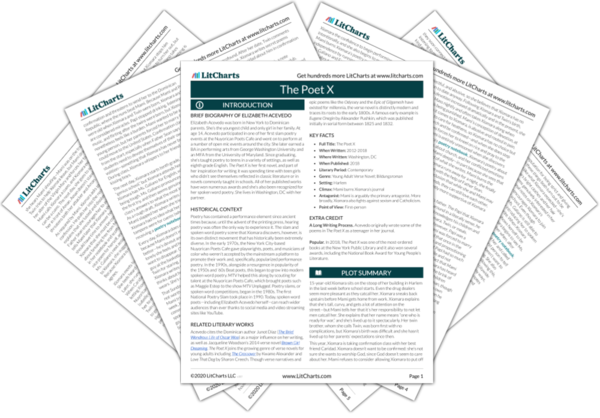When the baby bracelet breaks, Xiomara symbolically breaks free from Mami. Reciting her poems, especially the one about her name and being a warrior, is a way for Xiomara to assert her independence and her right to write poetry, no matter how Mami feels on the matter. At the same time, Mami feels more powerful as she recites Scripture, showing that even the Bible can, for some, provide the same kind of release as Xiomara’s poetry provides her.
